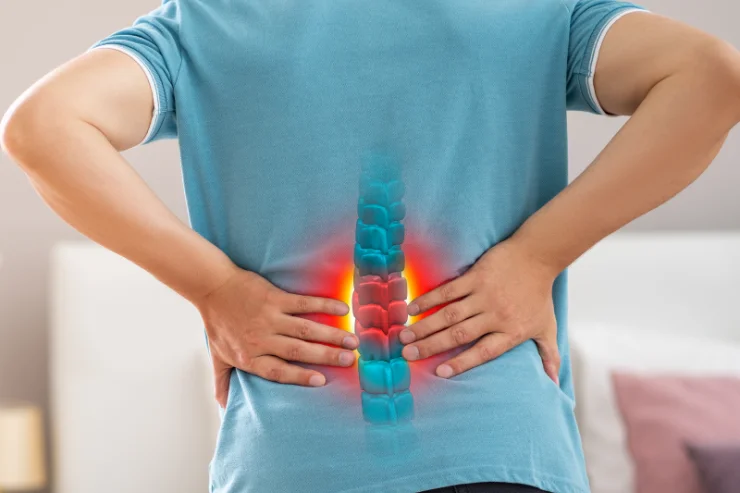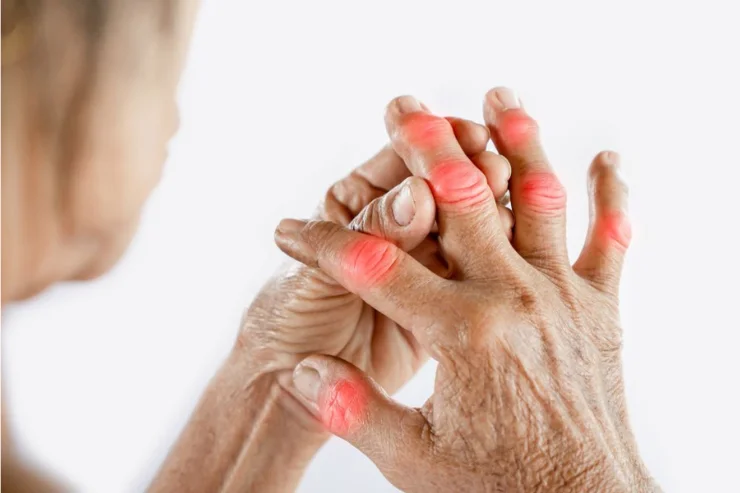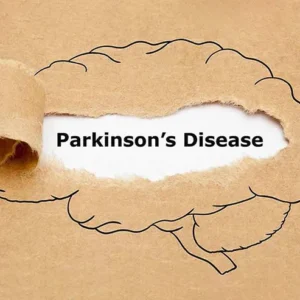Rhematoid Arthritis
₹799.00 – ₹999.00
- Online Available in All India.
- Home Visit Available Only In Kolkata.
Rheumatoid Arthritis is a chronic inflammatory disorder that can affect more than just your joints. In some people, the condition can damage a wide variety of body systems, including the skin, eyes, lungs, heart and blood vessels.
Description
Rheumatoid Arthritis is a chronic inflammatory disorder that can affect more than just your joints. In some people, the condition can damage a wide variety of body systems, including the skin, eyes, lungs, heart and blood vessels.
An autoimmune disorder, rheumatoid arthritis occurs when your immune system mistakenly attacks your own body’s tissues.
Unlike the wear-and-tear damage of osteoarthritis, rheumatoid arthritis affects the lining of your joints, causing a painful swelling that can eventually result in bone erosion and joint deformity.
The inflammation associated with rheumatoid arthritis is what can damage other parts of the body as well. While new types of medications have improved treatment options dramatically, severe rheumatoid arthritis can still cause physical disabilities.
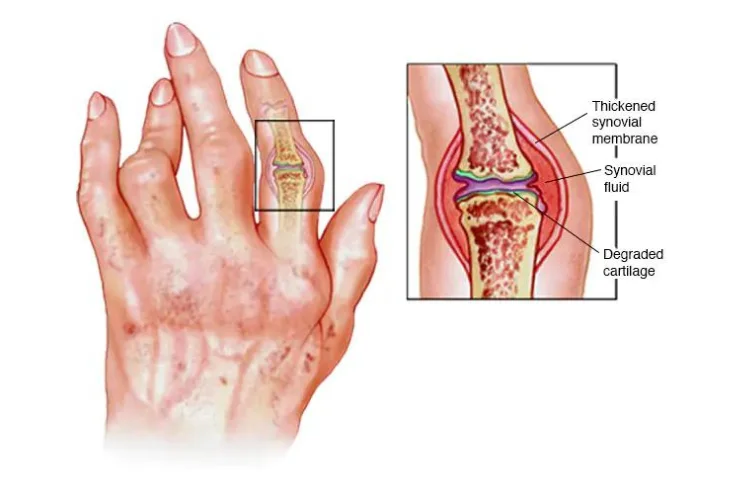
Symptoms
Signs and symptoms of rheumatoid arthritis may include:
- Tender, warm, swollen joints
- Joint stiffness that is usually worse in the mornings and after inactivity
- Fatigue, fever and loss of appetite
Early rheumatoid arthritis tends to affect your smaller joints first — particularly the joints that attach your fingers to your hands and your toes to your feet.
As the disease progresses, symptoms often spread to the wrists, knees, ankles, elbows, hips and shoulders. In most cases, symptoms occur in the same joints on both sides of your body.
About 40% of people who have rheumatoid arthritis also experience signs and symptoms that don’t involve the joints. Areas that may be affected include:
- Skin
- Eyes
- Lungs
- Heart
- Kidneys
- Salivary glands
- Nerve tissue
- Bone marrow
- Blood vessels
Rheumatoid arthritis signs and symptoms may vary in severity and may even come and go. Periods of increased disease activity, called flares, alternate with periods of relative remission — when the swelling and pain fade or disappear. Over time, rheumatoid arthritis can cause joints to deform and shift out of place.
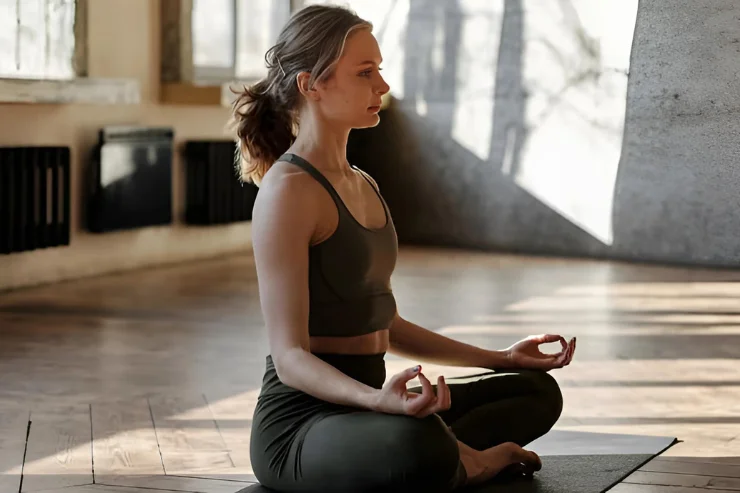
Can Yoga & Meditation help manage Rheumatoid Arthritis?
Yoga and meditation can help manage rheumatoid arthritis (RA):
- Stress management
Yoga can help manage stress, which is a known trigger for RA symptoms. Yoga can lower stress hormones like cortisol, which may indirectly reduce inflammation.
- Improved physical function
Yoga can improve physical function through its variety of postures, which are similar to static stretching. These postures can improve muscle strength, especially in the legs.
- Reduced pain
Yoga can reduce chronic pain symptoms by stimulating the parasympathetic nervous system and breaking the pressure-pain cycle.
- Improved mental health
Yoga can improve depressive symptoms, fatigue, and sleep.
- Reduced inflammation
Yoga can reduce the expression of inflammatory cytokines, which are considered to be the prime drivers of the inflammatory process in RA.
- Non-pharmacological treatment
Yoga is a non-pharmacological treatment that can be a cost-effective alternative to managing RA.
Other benefits of yoga for RA include:
- Reducing frustration and increasing positive feelings
- Being an enjoyable alternative to traditional forms of exercise


